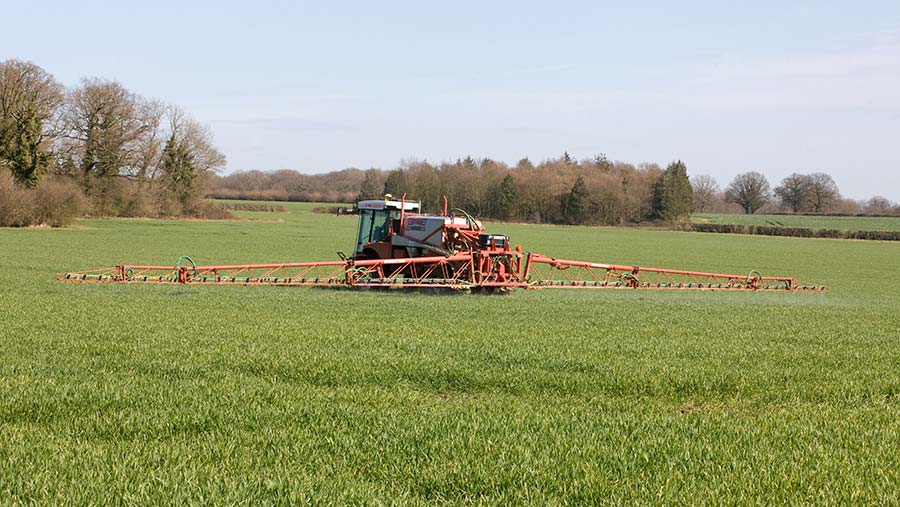Wheat growers gain new blackgrass herbicide for the spring
 © Tim Scrivener
© Tim Scrivener Winter wheat growers will have a new blackgrass herbicide to spray this spring, which could be particularly useful as many wheat crops that were drilled early in dry autumn conditions are seeing bad blackgrass and ryegrass infestations.
The new contact herbicide Atlantis Star, from agrochemicals giant Bayer, contains thiencarbazone-methyl, a new active ingredient to the original Atlantis and its best-selling blackgrass product Pacifica Plus, and so has better control of blackgrass, ryegrass and brome.
See also: Optimism for blackgrass control grows with new herbicide Luximo
Tom Chillott, the group’s cereals herbicide campaign manager, says the new product can be applied from February 1 – ideally at the one- to three-leaf stage of blackgrass – up to growth stage 32 in wheat, or about mid-late April.
“The new herbicide shows a step up in control from Pacifica Plus for grassweed control in wheat, while the smaller the target, the better it works, as with all contact herbicides,” he tells Farmers Weekly.
Lack of moisture
For those winter wheat growers who drilled early in September into dry seed-beds, residual herbicide products such as flufenacet and diflufenican (DFF) may not have worked as well as usual due to the lack of moisture in the soil, meaning extra control of blackgrass and ryegrass could be needed in the spring.
The new herbicide contains iodosulfuron and mesosulfuron – as in the original Atlantis – plus thiencarbazone-methyl (TCM), which is used as a maize herbicide.
Pacifica Plus is another three-way mix, but of idosulfuron, mesosulfuron and amidosulfuron. TCM is mainly taken up by plants through the leaves, but it has some residual activity on germinating seeds.
Mr Chillott says the new herbicide gives a 5-10% increase in blackgrass control, is 5-10% better for ryegrass and 10% better on bromes compared with the group’s leading blackgrass contact herbicide, Pacifica Plus.
Its spring window of application means it could be mixed with T0 or T1 fungicides.
It gives a slightly different spectrum for broadleaf weed control by replacing the amidosulfuron in Pacifica Plus with TCM, and is particularly strong on sow thistles, poppies and mayweed.
Resistance challenges
All three ingredients of the new product work by inhibiting acetolactate synthase (ALS), so will face similar resistance challenges to other spring post-emergence herbicides, and growers are advised to understand their resistance status before making an application.
However, Atlantis Star does have a different mode of action to residuals, such as flufenacet, DFF, prosulfocarb and pendimethalin, and so it is useful to have more than one of mode of action in grassweed control, especially with ryegrass.
Over time, the new product is set to replace Atlantis and Pacifica Plus, and is expected to be priced at a small premium to Pacifica Plus to reflect its better grassweed control
Actives
Atlantis Iodosulfuron-methyl-sodium and mesosulfuron-methyl
Pacifica Plus Iodosulfuron-methyl-sodium, mesosulfuron-methyl and amidosulfuron
Atlantis Star Iodosulfuron-methyl-sodium, mesosulfuron-methyl and thiencarbazone-methyl

